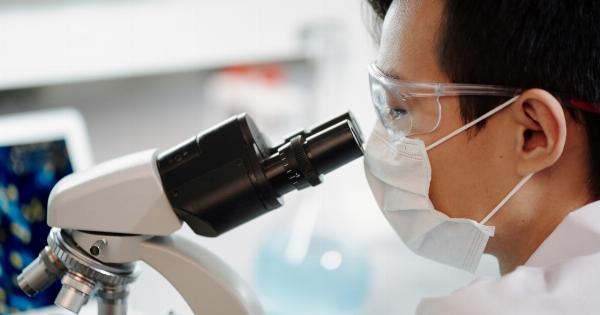Pancreatic cancer is an aggressive type of cancer that is often difficult to treat. Although chemotherapy and radiation can help to slow the growth of the cancer cells, current treatments are not effective enough to cure the disease.
However, recent research has suggested that certain types of bacteria may play a key role in the development and progression of pancreatic cancer, and may also provide new avenues for treatment.
Bacteria in the Tumor Microenvironment
The tumor microenvironment of pancreatic cancer is a complex and dynamic system. In addition to cancer cells, the microenvironment also contains a variety of immune cells, fibroblasts, and extracellular matrix components.
Recent studies have shown that bacteria can also be present in the microenvironment of pancreatic cancers.
One study found that a type of bacteria called Fusobacterium nucleatum is often present in the microenvironment of pancreatic cancer.
This bacterium is known to promote inflammation and has been linked to the development of other types of cancer, such as colon cancer. In a mouse model of pancreatic cancer, researchers found that F. nucleatum could promote the growth and spread of cancer cells.
Another study found that a bacteria known as Proteobacteria was more common in the fecal samples of patients with pancreatic cancer than in healthy individuals.
This suggests that the gut microbiome may play a role in the development of pancreatic cancer.
Bacterial Metabolites and Pancreatic Cancer
In addition to bacteria themselves, bacterial metabolites may also be important in the development of pancreatic cancer.
One study found that a metabolite called butyrate, which is produced by certain types of gut bacteria, can promote the growth of pancreatic cancer cells. Butyrate is known to be involved in regulating gene expression and may alter the expression of genes that are important for cancer cell survival.
Another study found that a different bacterial metabolite, called propionate, may have anti-cancer effects in pancreatic cancer. Propionate is also produced by gut bacteria, and has been shown to inhibit the growth of cancer cells in mice.
Bacteria as a Therapeutic Target
The presence of bacteria in the tumor microenvironment suggests that they may be a potential therapeutic target for pancreatic cancer. One approach is to use antibiotics to target the bacteria directly.
In a mouse model of pancreatic cancer, treatment with the antibiotic metronidazole reduced the growth and spread of cancer cells by targeting F. nucleatum.
Another approach is to use probiotics or prebiotics to alter the composition of the gut microbiome.
Prebiotics are food components that promote the growth of beneficial gut bacteria, while probiotics contain live bacteria that can potentially have therapeutic effects. In a mouse model of pancreatic cancer, treatment with a combination of probiotics and chemotherapy was found to be more effective than chemotherapy alone.
The Future of Bacteria-Based Therapies for Pancreatic Cancer
The use of bacteria-based therapies for pancreatic cancer is still in its early stages, and much more research is needed to fully understand the role of bacteria in the development and progression of the disease.
However, the growing body of evidence suggesting that bacteria may play a key role in pancreatic cancer presents a promising avenue for future research and treatment.
By targeting the bacteria in the tumor microenvironment, it may be possible to develop new and more effective treatments for pancreatic cancer.
As our understanding of the gut microbiome and its role in cancer continues to evolve, we may discover even more ways in which bacteria can be used to help fight this deadly disease.


























